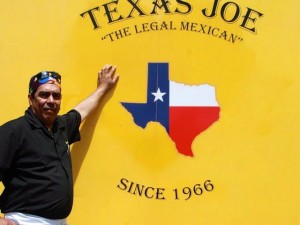CINCINNATI, OH – Joseph Garcia is a third generation Mexican-American from Texas. Eight years ago, he moved from Houston to Northern Kentucky, where he began operating a food truck called Texas Joe “The Legal Mexican.” In September, Garcia told WCPO the name stems from his experiences with stereotypes.
While Garcia takes a lighthearted attitude toward stereotypes about his heritage, Alfonso Cornejo, president of the Hispanic Chamber Cincinnati USA, does not share his perspective.
Born and raised in Mexico, Cornejo was head of human resources for Procter & Gamble in Mexico City 25 years ago, before taking a position with the company’s international personnel department in Cincinnati.
Now the head of his own consulting firm, Cornejo said he and other chamber members find the name of Garcia’s food truck insulting and want him to change it.
“(Garcia’s) intentions might be to be funny, but it’s not funny,” Cornejo said, adding that while Latinos are culturally a positive, relationship-based people, the name sends the message that they are not welcome here.
“I think it’s just disrespectful (to the immigrant community) for a business to make money off of saying they are ‘the legal Mexican,’ as opposed to ‘the illegal Mexican,’” said George Fee, a member of the Hispanic Chamber Cincinnati USA board of directors.
After initially agreeing to comment for this article, Garcia declined to respond to the specific concerns cited by Fee and Cornejo.
“There are enough haters already”
Latinos make up about 16 percent of the population in the U.S., according to 2010 U.S. Census data. In Greater Cincinnati, about 2.6 percent of the population is Latino.
About 55 to 65 percent of the Tri-State’s Latino population has roots in Mexico. The rest of the Latino population is made up of individuals with ties to Central and South American countries, including Guatemala, Nicaragua, Honduras, Panama, Peru and Venezuela. Some have lived in the U.S. their whole lives.
In their efforts to encourage entry into the business community, chamber members try to promote civic pride and respect for others, concepts that are counter to the message the food truck’s name sends, Fee said.
According to Cornejo, the Garcia’s food truck could foster hatred.
“I just don’t want him to be promoting hate within the community. There are enough haters already,” Cornejo said. “We want him (Garcia) to be successful. We just don’t want him to be successful insulting other people.”
Find the entire article by Roxanna Swift at WCPO <here>




